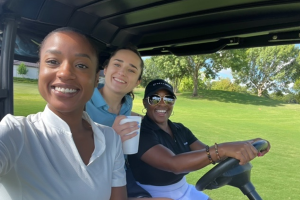
At its core, insurance is a pillar of support for individuals and businesses, so it makes sense that charity has emerged as a fundamental priority for an industry centered on helping those in need.
Between 2015 and 2019, the insurance industry contributed nearly $600 million annually to charitable causes, according to a McKinsey report. And according to the Insurance Information Institute, U.S. insurers and their foundations also responded quickly to the pandemic, contributing approximately $280 million to various COVID-19-related causes by June of 2020.
The Chubb Charity Challenge is one example of an ongoing charitable initiative for the insurance agent, broker and client community that raises money for causes and organizations important to them throughout North America. Over the past 21 years, the Chubb Charity Challenge has donated nearly $18 million to local charities, showcasing the industry’s desire to give back. All the funds raised by participating teams go to charities chosen by the winning teams, and more than 6,000 charities within their local communities have benefited to-date.
Organizations such as the Insurance Industry Charitable Foundation (known as the IICF) have helped organize national and even international charity and volunteer opportunities highlighting the philanthropic nature of the insurance industry. Established in 1994, IICF has contributed $42 million in community grants with 300,000 volunteer hours donated by over 110,000 insurance professionals supporting hundreds of nonprofits. In addition to their work in local communities, they are also engaged in ongoing, broader-based relief efforts including the Children’s Relief Fund supporting children at risk of food insecurity.
But charity and serving the community do not need to be solely defined by charitable giving or volunteering. In fact, that philanthropic spirit exists within the insurance industry’s ethos. In real-world terms, the human outreach of the industry following a disaster is unparalleled. Whether it’s volunteering to deliver water or critical supplies, or on a broader scale, stepping up as “financial first responders”, insurers, agents and brokers help individuals, communities, and businesses when that help is needed most. And beyond the catastrophic events that grab the headlines, the insurance industry helps get its customers back on their feet every day.
A company’s philanthropic track record can be an important factor in attracting and retaining top talent in an increasingly competitive environment. According to the McKinsey data, “employees prefer to work for companies that are involved in charitable causes, indicating a greater desire to make a social impact through their work compared with previous generations.”
There is also an innate benefit from being good corporate citizens and having a reputation for giving back. As noted in Harvard Business Review, firms with strong positive reputations attract high-quality talent, are perceived as providing more value, and tend to have more loyal customer bases. Additionally, if an insurer can demonstrate that they have supported an agent/broker or client and had an impact on them beyond their assumed responsibility, that will likely make their relationship even stronger.
The business case for philanthropy is clear, and the moral case even clearer. Insurance agents’, brokers’, and carriers’ efforts to improve their communities have immeasurable benefits. Fortunately, the industry is up to the challenge and is committed to giving back.
To learn more about the many ways Chubb continues to support the communities it serves, visit https://about.chubb.com/citizenship.html.
Tom Fitzpatrick is Southwest Region COO and Houston Branch Manager at Chubb.
The opinions and positions expressed are the authors’ own and not those of Chubb. The information and/ or data provided herein is for informational purposes only and is not a substitute for professional advice. Insurance coverage is subject to the language of the policies as issued.